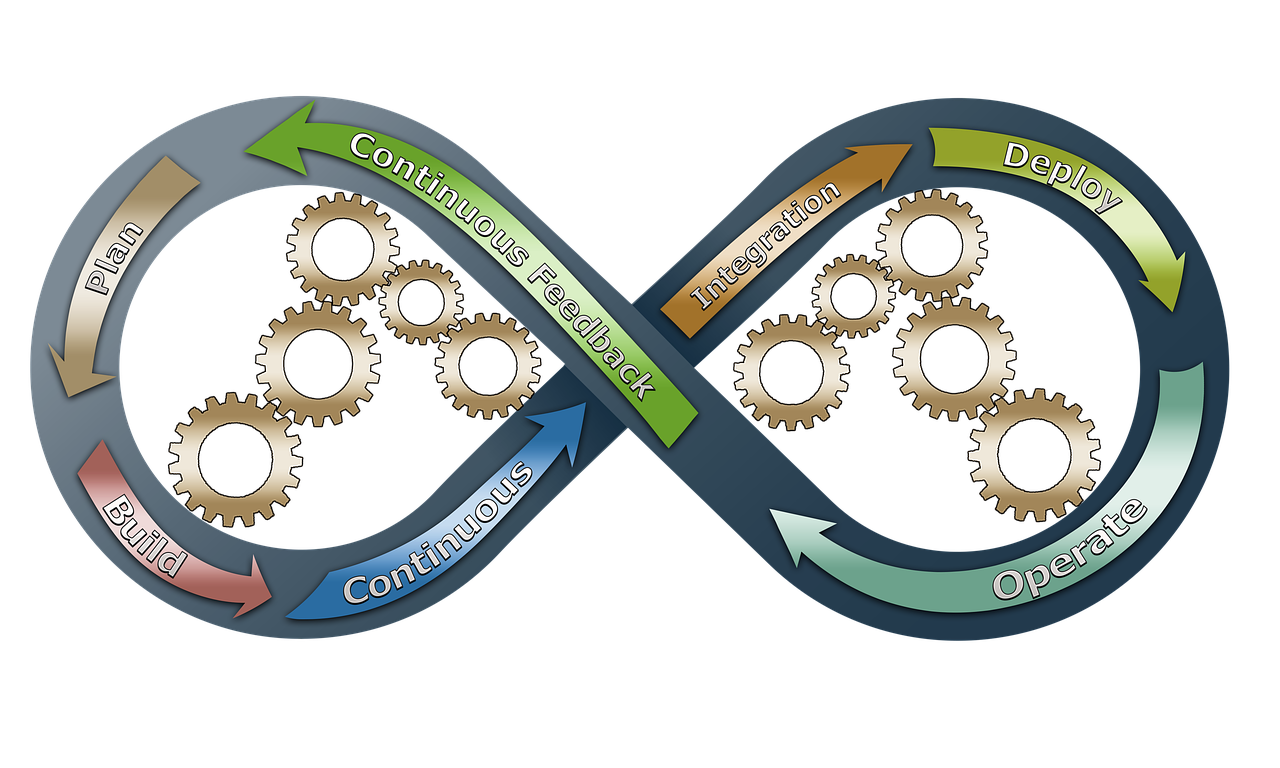
DevOps services have rapidly become a popular approach in software development, integrating software development and IT operations into a collaborative approach that focuses on automation, continuous delivery, and agile processes.
While DevOps services offer many benefits to organizations, there are also challenges that must be addressed in order to fully realize its potential. We will explore the challenges and opportunities introduced with DevOps services below.
What Do We Mean By DevOps Services?
So before we get to know more about the challenges and opportunities that DevOps services can present, it helps to familiarise ourselves with what DevOps is and what it means for businesses.
DevOps services refer to a set of practices, tools, and methodologies used by organizations to enhance their software development and deployment processes.
DevOps services help organizations to improve collaboration between development and operations teams, increase the speed of software development, and reduce the time to market.
These services include a range of tools such as automation tools, containerization tools, configuration management tools, and monitoring tools that help organizations to automate their software development and deployment processes.
Additionally, DevOps services also involve the adoption of agile and lean principles to ensure that software development is iterative, continuous and focused on delivering value to end-users.
Overall, DevOps services are critical for organizations that want to achieve faster and more efficient software development and deployment processes.

Challenge 1: Cultural Shift
One of the biggest challenges introduced with DevOps services is the cultural shift that must occur within an organization.
DevOps requires a collaborative approach that breaks down silos between development, operations, and other teams.
This requires a change in mindset, with a focus on teamwork, communication, and collaboration.
Leaders must foster an environment that encourages and rewards collaboration, while also addressing any resistance or reluctance to change.
Businesses need to address the fact that some employees may find it more difficult to adapt to the change that DevOps may bring into the workplace, and address any concerns to help rectify this.
Opportunity: Improved Communication And Collaboration
While cultural change can be difficult, the benefits of improved communication and collaboration are significant.
With DevOps services, teams work together to solve problems and identify opportunities for improvement.
This leads to better alignment between development and operations teams, resulting in faster time-to-market, improved quality, and reduced costs.
Challenge 2: Continuous Integration And Deployment
Another challenge introduced with DevOps services is continuous integration and deployment.
This requires teams to automate the software development process, from code creation to deployment.
This requires significant effort and investment in automation tools, testing frameworks, and other technologies.
Opportunity: Faster Time-to-Market
While continuous integration and deployment require significant investment, the benefits are clear.
By automating the development process, teams can deliver software faster and more reliably.
This results in faster time-to-market, enabling organizations to quickly respond to changing customer needs and market conditions.
Challenge 3: Security
Security is a critical consideration in software development, and DevOps services introduce new challenges in this area.

With continuous integration and deployment, security must be integrated into the entire development process.
This requires specialized knowledge and expertise, as well as investment in security tools and technologies.
Opportunity: Improved Security and Compliance
Despite the challenges, DevOps services can also improve security and compliance.
By integrating security into the entire development process, teams can identify and address security issues earlier in the development cycle.
This results in more secure and compliant software, which is critical in industries such as healthcare, finance, and government.
Challenge 4: Scalability
Scalability is another challenge introduced with DevOps services. As organizations adopt DevOps, the number of software releases and deployments can increase significantly.
This requires investment in infrastructure and resources to support the increased workload.
Opportunity: Improved Efficiency and Scalability
Despite the challenges, DevOps services can also improve efficiency and scalability.
By automating the development process and integrating operations, teams can identify and address issues faster, reducing downtime and improving overall efficiency.
Additionally, DevOps services can be used to manage and scale infrastructure, enabling organizations to rapidly respond to changing demands.
DevOps services offer significant benefits to organizations, but also introduce challenges that must be addressed.
Cultural change, continuous integration and deployment, security, and scalability are among the most significant challenges organizations face.
However, with the right investments in technology, tools, and expertise, these challenges can be overcome.
The benefits of DevOps services, including improved communication and collaboration, faster time-to-market, improved security and compliance, and improved efficiency and scalability, make it a worthwhile investment for organizations seeking to stay competitive in today’s fast-paced business environment.







